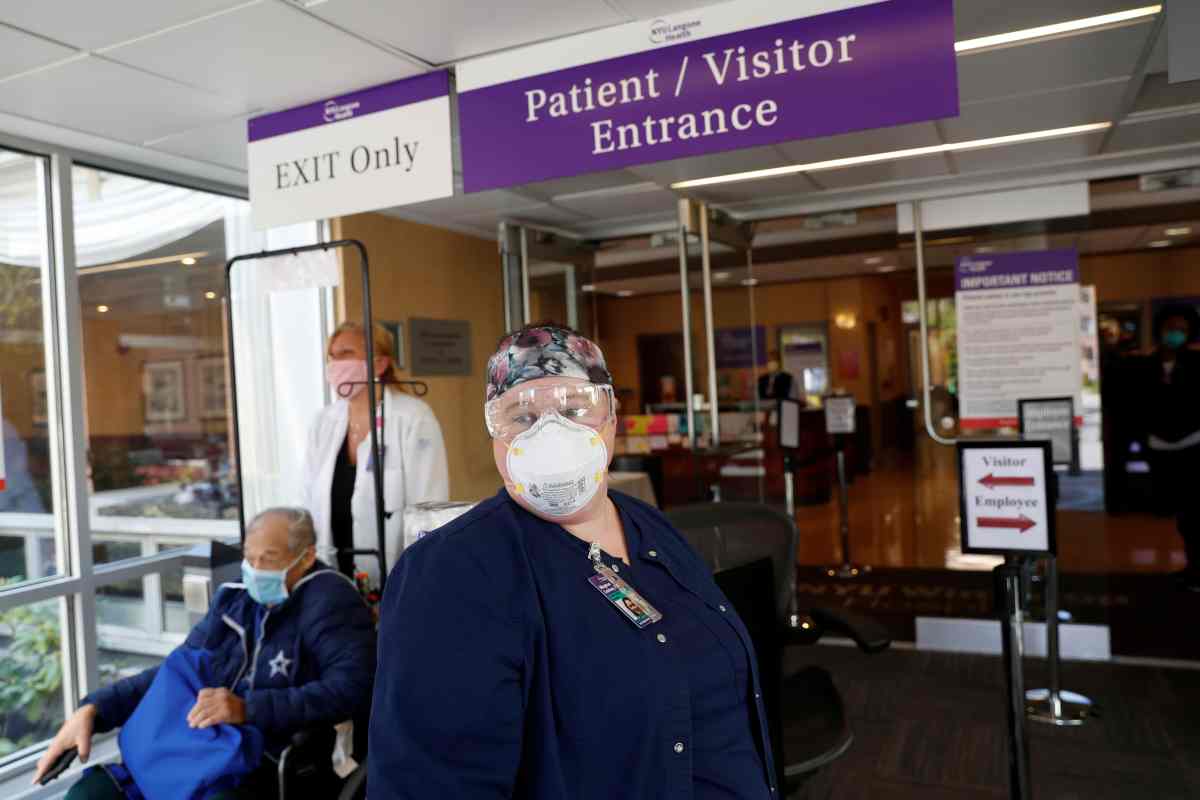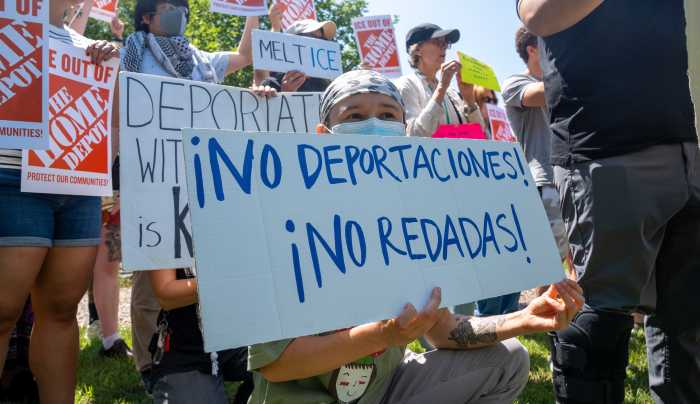By Shannon Stapleton and Clare Baldwin
The coronavirus pandemic has restricted almost everyone’s freedoms in America but for Meghan Lindsey it has done the opposite. This is the freest she has ever felt.
Traveling to New York City at age 33 to work as a COVID-19 nurse was the first time that Meghan, a married mother of two, had ever left southwest Missouri.
“It was my first time on a plane,” she said, describing how she came to work 12-hour shifts in the intensive care unit at NYU Winthrop Hospital in Mineola. “Flying into New York was the first time I’d ever seen the ocean.”
There are many stories about the lonely coronavirus deaths in the city’s hospitals and the traumatic work of the nurses who staff them.
Meghan’s story is about unexpected opportunities. It’s a story of how the pandemic gave a woman the chance to strike out into the world, confront danger and make a difference, and how her husband stayed home to care for their daughters. It’s a story about new beginnings.
“I always wanted to do something for my country,” said Meghan. “This was a once-in-a-lifetime opportunity to do something meaningful.”
Meghan’s first nursing shifts in New York were a shock.
There are a lot of sick people in Missouri with chronic diseases like diabetes, where the progressions are slow and the declines are familiar.
COVID-19 patients are stunned by a virus that turns their lives upside down and in many cases ends them.
“One of my patients had her toes done up all nice and pretty and still had her jewelry on,” said Meghan.
Because they were coronavirus patients and visitors were banned, it was Meghan who would hold their hands as they died.
“Once you FaceTime and you meet their family and you hear them crying and sobbing, you know their cute little nicknames and you start to know them, it just gets to be really personal,” said Meghan. “You have a hard time separating yourself and not truly grieving for them as well.”
Despite all of the death, Meghan’s time in New York City’s COVID-19 wards was unexpectedly affirming. The pandemic gave Meghan something that her life in Missouri so far had not: a feeling of everything sliding into place.
When Meghan graduated from nursing school, it wasn’t like she imagined. It turned out to be just a job. She mourned.
“Now for once, it’s actually something important,” said Meghan. “This is the first time since I’ve become a nurse that it’s like, ‘yes, this is why.’ I can make a difference, and I can help, and I am strong enough for this.”
Her kids, she said, are proud. “They know that what I’m doing is hard and that I put my life in danger.”
Meghan is from a small town in Missouri. Most Sundays, she goes to church. Her mom was a manager at Walmart and her dad worked construction. Before he lost his job to the pandemic, her husband Aaron sold fire suppression systems to small businesses.
Meghan is the first in her family to finish college and has long held her family together. As thrilling as it was to be in New York, it was also hard.
Meghan often wondered if she should come home. Her husband Aaron told her no. He and the girls were fine, what she was doing mattered and he was proud of her. He sometimes called her superwoman.
“If he wasn’t such a good dad and there for my children, I could never do this,” said Meghan. He deserves credit too, she said, “but I guess you could say the limelight’s on me.”
Being a COVID-19 travel nurse isn’t glamorous. Meghan had to wear protective gear during her shifts and there was a lengthy decontamination process when she got home each night. She lived in a hotel room with another nurse and had to find a laundromat every few days to wash her scrubs.
But sometimes it did feel like a grand adventure. She saw the Statue of Liberty. She heard someone speaking Russian. She learned how to fold a slice of pizza.
Restaurants sometimes gave her and her friends free food “because we’re nurses,” she said with a bit of awe. She took selfie after selfie standing in the middle of empty New York City streets and no cabbies honked at her.
Her husband Aaron said he was sometimes a little jealous (it’s New York), occasionally worried (again, New York), but mostly he was just really proud.
“Meghan hasn’t been out there in the world,” he said. She nailed it.
Now, at the end of her contract, Meghan is unsure of what the future holds.
She is back in a small town in the Midwest. She no longer has a job and she is coming off the biggest high of her life. She sometimes asks herself, will I have the desire to go back to this life?
Something about New York stood out to her: people there had aspirations to make something of themselves.
(Reporting by Shannon Stapleton and Clare Baldwin; Editing by Kieran Murray and Lisa Shumaker)
For more coronavirus coverage, visit longislandpress.com/coronavirus
Sign up for Long Island Press’ email newsletters here. Sign up for home delivery of Long Island Press here. Sign up for discounts by becoming a Long Island Press community partner here.






























